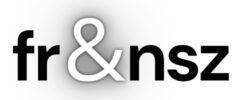Jonah Berger – Magic Words (2023)
Woordkeuze. De auteur beschrijft hoe kleine details tot een verschillend resultaat kunnen leiden. Daarnaast illustreert het boek impliciet de (vermeende) kracht van herhaling; hoewel de verschillende voorbeelden interessant zijn, zou een blogpost(s) wellicht hebben volstaan. Aan de andere kant, het zou natuurlijk ook kunnen dat precies de juiste woorden zijn gekozen.

Rather than asking for help cleaning up, try using a noun instead: “Can you be a helper and clean up?” Now cleaning up isn’t just helping, it’s an opportunity to claim a desired identity.
Rather than thinking about what one should do, think about what you could do instead. People who thought about what they could do came up with better solutions.
Volatility makes stories better. Audiences are dialed in to find out what will happen next, and as a result, enjoy the experience more.
For hedonistic things (music, movies, and novels), emotional language increased impact. […] For utilitarian products, emotional reviews were less helpful.
Comedy often follows a rule of three, or comic triple, in which similar things happen to multiple people. A priest walks into a bar, something happens. Then a nun walks into the bar, the same thing happens. But then, a rabbi walks in…
Praising a student’ process (how hard they worked) encourages them to keep going. They were more interested in learning and less interested in just doing well, and that shift in mindset led to a better result. Telling someone they’re smart implies their performance depends on a stable trait. If they don’t have what it takes, there’s not much they can do to change it.
